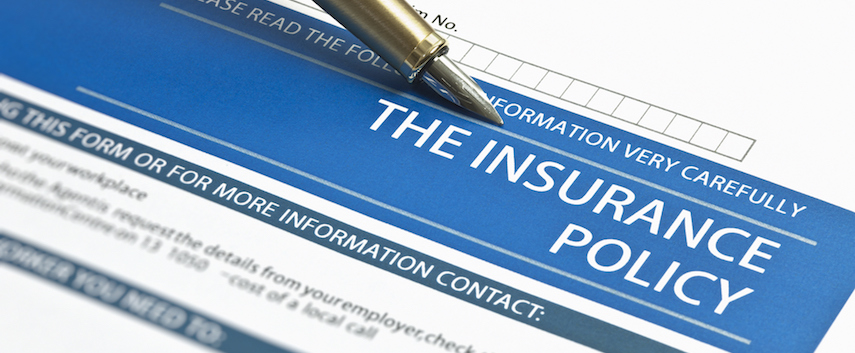How to Save on Homeowner's Insurance

If something happens to your home, from robbery to wind damage to fire, you want to make sure you can make repairs. This is where homeowners insurance comes in. Homeowners insurance allows you to pay monthly premiums so you’ll be covered in the case of a damaging and expensive event. So how can you save on homeowners insurance while still getting full coverage? Here are a few ways.
How to Save on Homeowners Insurance
Make Your Home Safer
How to save on homeowners insurance partly depends on where you live and what type of home you live in. Though you can’t control the hazards in your area, you can make small changes to make your home safer. Here are a few examples:
- Update electrical: If your home is older, you may have unsafe electrical wiring. Updating this, especially if you are already making other updates, can lower your homeowners insurance premiums.
- Update plumbing: water damage due to faulty plumbing is a common cause of homeowners insurance claims. If you’re already making updates, overhaul your plumbing to make it safer, and let your insurance agent know.
- Install home security system: Robbery is another common cause of home insurance claims. Installing a home security system can lower your chances of robbery, and thus lower your premiums.
- Install new roof: older roofs are more likely to become damaged due to wind and hail, the most common cause of claims. This means installing a new roof can lower your premiums.
Eliminate Risks
Some risks, such as living in a flood zone or an area with inclement weather, you cannot control, and your home insurance will reflect this. How to save on homeowners insurance also includes risks you can control. If you’re considering home updates or changes, think twice about the following, since they can raise your premiums.
- Pool: Adding a pool increases the risk that someone will get hurt on your property, which will also increase your homeowners insurance.
- Fireplace: Adding an open flame in your home will increase insurance rates for obvious reasons. Though a fireplace can be cozy, consider making other updates first.
- Dog: Many homeowners consider dogs good protection against burglars, but insurance carriers may also consider them a risk to visitors. Owning a dog can increase your insurance rates, especially if the dog is considered an aggressive breed.
- Trampoline: A trampoline can be fun, but it can also be dangerous, which increases your liability risk.
- Smoking: smoking puts your home at greater risk of fire, which can increase your premiums. Put this on a long list of reasons to kick the habit.
Increase Deductible
How to save on homeowners insurance is not always a question of risk; there’s also the financial factor. As with most insurance types, increasing your deductible means lowering your premium. To an insurance company, this can mean lowering the chances of small claims, since you have to pay your deductible before your insurance pays. Consider raising your deductible from $500 to $1,000, and you may be able to save substantially in the long run. If you do, just make sure you have enough cash on hand to pay the deductible.
Bundle Insurance
Insurance carriers want your business, and they’ll provide discounts if you buy more insurance from them. If you have auto, life, and home insurance all in different places, ask about discounts you can get from bundling.
Shop Around
It can be a hassle to get home insurance, and it’s tempting to settle with the first rate that you get. However, shopping around can lower your premiums substantially. Talk to agents working with different companies, or talk to an independent agent. Ask about rates and discounts, as well as the claims process. Keep in mind that the lowest premium is not the only factor—you also want to be covered if you have to make a claim.
Improve Your Credit Score
You’ve already seen that your credit score impacts your mortgage, but it impacts your home insurance as well. Homeowners with credit scores above 630 are seen as more reliable, and will get better rates.
Balance Your Coverage
It’s important to get the right amount of coverage, but you also don’t want to pay for coverage you’ll never use. Even in a worst case scenario—your home is completely destroyed, perhaps in a fire or tornado—keep in mind that you’ll still have your property and foundation, so rebuilding might not cost as much as you think. Also, consider the other property in your home you’re insuring, such as jewelry or electronics, and see if this makes sense with your deductible and premium.
Ask for Discounts
Many homeowners insurance discounts exist that you might not be aware of. For example, homeowners that are home during the day, such as those that work at home or who are retired, are considered less likely to be robbed, so they may pay less in premiums. Neighborhoods with Homeowners Associations are often safer than other neighborhoods, so paying HOA fees may win you a discount. Different insurance carriers offer different discounts, so ask about which you may be eligible for.
Now that you know how to save on homeowners insurance, maybe it’s time to shop around. Looking at other carriers won’t raise the rates that you currently have, and you might find a better deal elsewhere. If you haven’t considered your home insurance premiums in some time and you’ve made improvements to make your home safer, ask about discounts you may now be eligible for.


